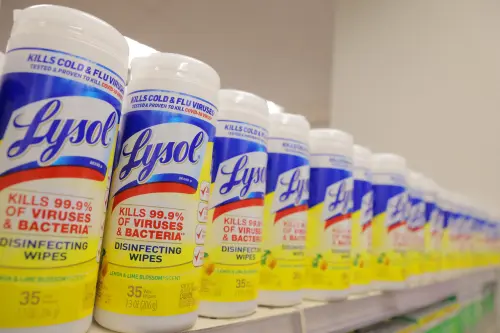Some investors are concerned that Reckitt may need to increase prices in the United States or face higher costs due to its lower manufacturing capacity compared to some competitors, leaving the company potentially more vulnerable to new U.S. tariffs on Mexican imports.
Reckitt, known for products like Lysol cleaning items and Durex condoms, operates five factories in the United States, locally producing about 57% of its U.S. sales volumes, with the remaining 43% sourced from countries like Mexico and Southeast Asia.
Reckitt CEO Kris Licht stated, "We have been closely monitoring the tariff situation," acknowledging uncertainties about future tariffs and emphasizing the company's ongoing investments in its American supply chain.
The recent tariffs imposed by President Trump have prompted concerns across corporate America, with retailers such as Target and Best Buy anticipating price hikes that could impact consumer spending.
In response to the evolving tariff landscape, Reckitt is evaluating strategies to mitigate potential financial impacts, including investing in domestic supply chains like its pharmaceutical facility in North Carolina.
As some companies adjust their business models to navigate tariff uncertainties, analysts suggest that companies with U.S.-based production may offer more stability in the current volatile trade environment.
Reckitt remains optimistic, with plans to carefully assess the impact of tariffs and utilize pricing strategies to manage potential challenges, while emphasizing their history of successfully navigating market fluctuations.
